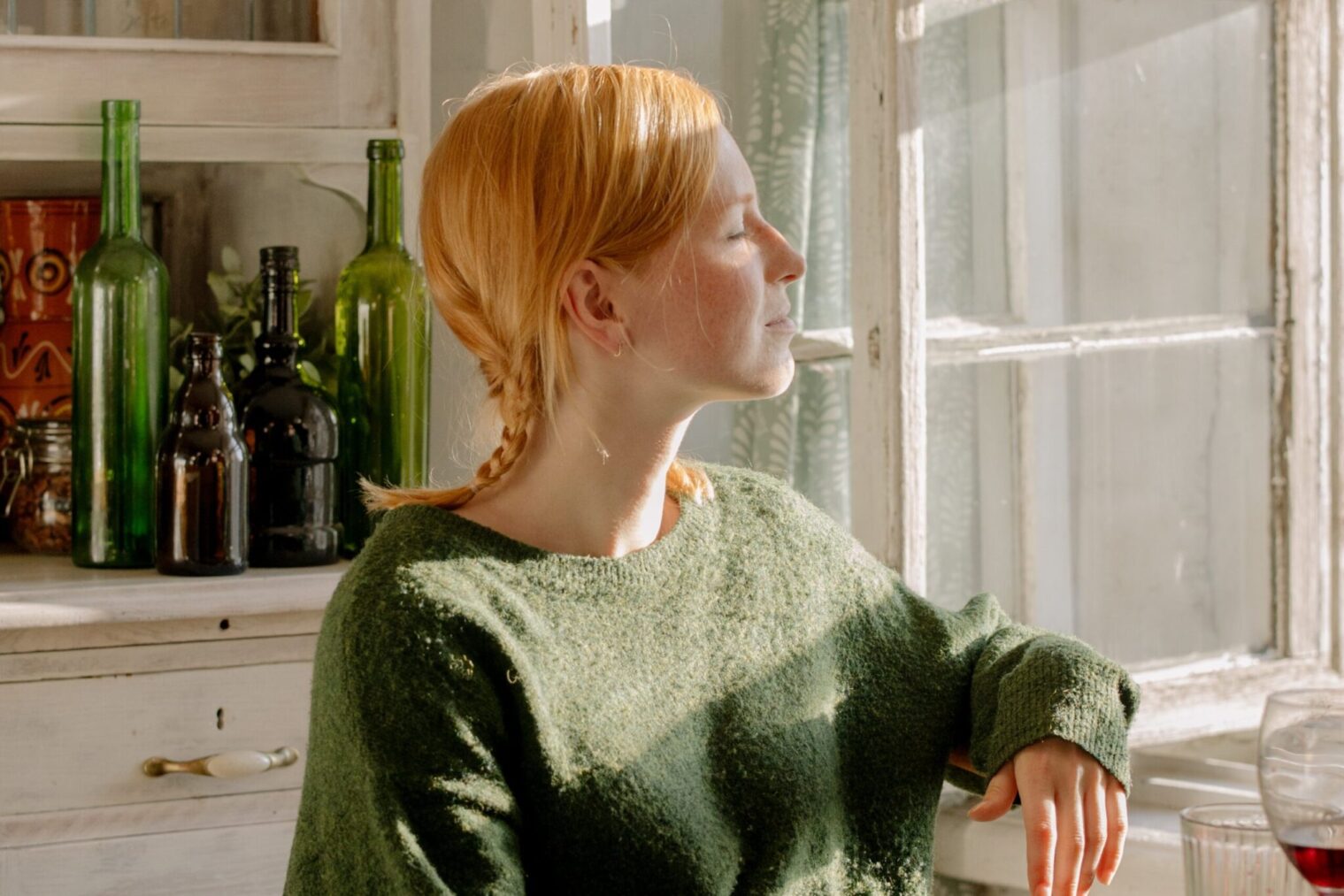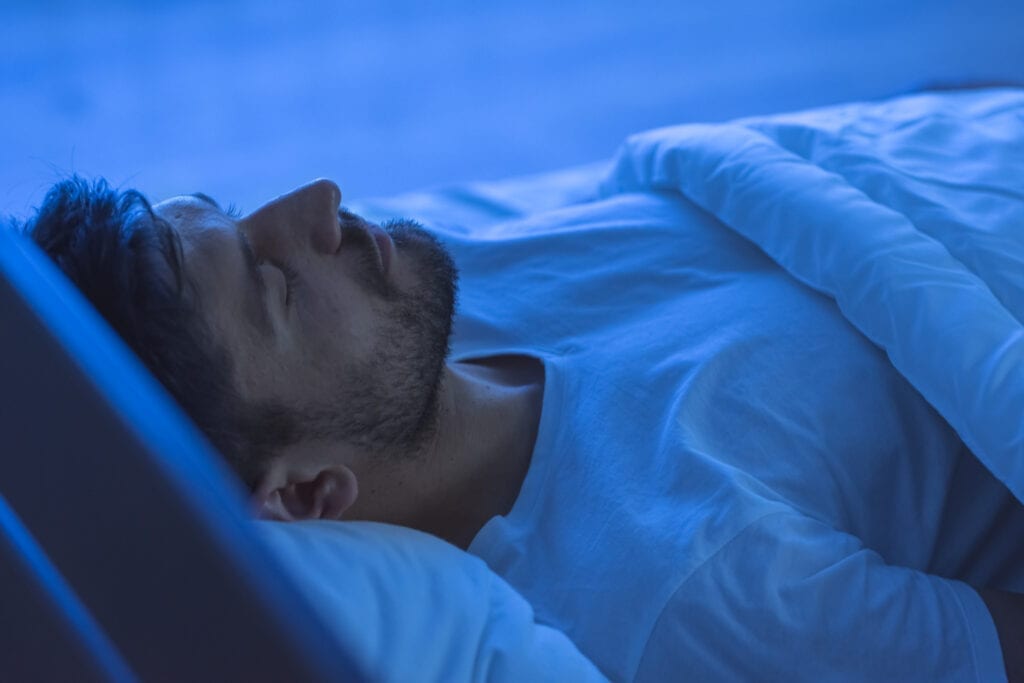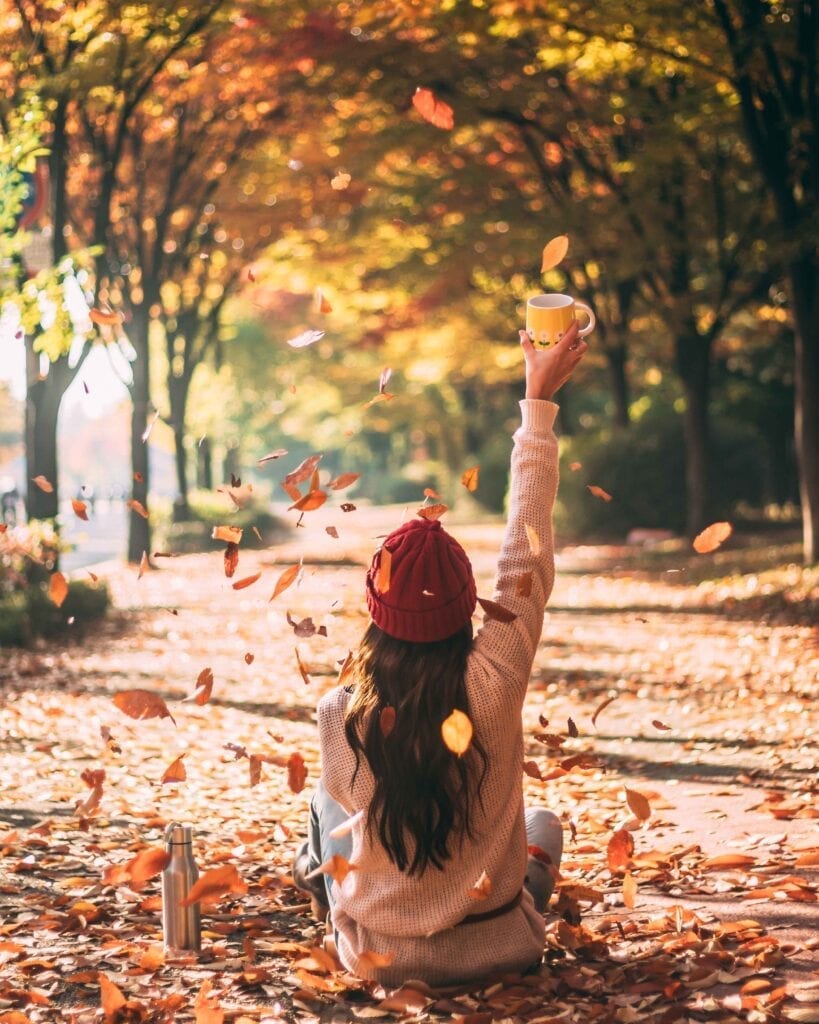
Feel like hibernating? The transition from autumn to winter and what it does to your body
This month, we at Humanoo have deliberately dedicated ourselves to the topic of #winterblues. Simply because we can’t deny it: Everything somehow has this gray haze. This has a noticeable effect on us and the mood of the team.
In the last blog article, we looked at what transition time is all about and what myths and processes in nature can help us better understand this time.
Today we would like to devote ourselves fully to our body and mind.
How does the body react when it has less energy available and what biochemical processes take place – without us actually being aware of it?
In the last article on the topic of #winterblues, you will then learn practical tips on how to survive this dark season well and take sufficient care of yourself to be able to go into your full power in the spring.
Light as a source of energy: Why we cannot live without light
Every living thing needs light to grow and thrive: Whether trees, plants, animals, or humans. Survival without sunlight is therefore not possible at all – your houseplants are a good proof of this.
Sunlight has a decisive influence on biochemical processes in our organisms. For example, it controls our sleep-wake rhythm, which is why we get tired quickly when it gets dark and automatically want to wake up when the room brightens. That’s why sleep researchers also recommend darkening your room well before going to bed so that you can get into the deep sleep phase.

Light irradiation can be physically measured in the unit lux. For comparison: On a gray, rainy winter day, we have around 3,500 lux, while a bright summer day has up to 100,000 (!) lux. Now think about the effects this has on your body.
If we expose our body to less light in autumn and winter, it begins to release more of the sleep hormone melatonin. At the same time, less of our happiness hormone, serotonin, is released – more on this later.
You need to think about your body at this point: it’s going through a transition period where it’s getting much less of the fuel it desperately needs to live: Light.
He is thus forced to change his processes. Above all, this transitional period can make you feel much more tired than usual. This is quickly classified by doctors as “winter depression”, although the body is simply in the process of adapting step by step.

Experts say that the organism needs about two to three cold spells to get used to this change. However, you can also help yourself by making sure you spend a lot of time outdoors and giving your body enough light.
It is also interesting to note that women, at 55 percent, react more sensitively to the dark days than men and thus feel the “winter blues” more strongly.
For men, the figure is 46 percent. Overall, however, 51 percent of respondents said they suffer from mood swings in the fall – these were the results of a YouGov survey.
The earlier onset of darkness and the resulting increased production of melatonin naturally have an influence on your need for sleep. The shorter the days, the more we want to hide under the covers and preferably not come out at all.
It makes sense, after all, darkness is a sign for the body to go to bed. Just think about how ancient people who had no electricity lived back then. They went to bed relatively quickly after sunset and woke up with the sunrise. That’s exactly what your body is trying to tell you on days like this: Go to bed!

Sleep researchers have another hypothesis: our internal clock could be “misaligned”, so to speak, by all the darkness. The body is confused and can no longer clearly distinguish between day and night. This could lead to a situation where you don’t really wake up during the day and can’t sleep at night. Here, too, exercise can provide a remedy. Because – as we have now learned – you can reduce the release of melatonin through more exposure to light and thus automatically feel less tired.
However, it is never wrong to simply allow yourself more sleep on gray autumn days than in the spring or summertime.
Serotonin: Our brain also lives in seasons
The more tired we get, the less serotonin our body produces, which is the hormone that makes us jump for joy and makes us happy.
Canadian scientists have found a link between the “winter blues” and serotonin production. After all, a lack of serotonin in the brain is often considered one of the causes of the diagnosis of “depression”.
The causes cited in these findings are:
- Increased nutrient uptake
- Less available energy
- More fatigue
- Longer sleep
The scientists found a protein that behaves depending on the seasons and affects our mood. It is controlled by light and is much more active on dark days with little light exposure than in spring or summer.
This protein is able to transport the happiness hormone serotonin and accompanies it out of our brain in autumn and winter. Ergo: Our mood is much lower than on bright days and we hang our ears more often.
Of course, this can be particularly hard on sensitive people, who are very sensitive, and make them more melancholic than others. Here, too, the solution is to treat yourself to as much light as possible.
Vitamin D: Without sun no healthy bones and immune system
Sunlight is also responsible for the production of vitamin D. This in turn strengthens our bones, makes our muscles stronger, and ensures a good immune system, which – as we know – is particularly important in these times.

Some studies even confirm that vitamin D is essential for our cardiovascular health and minimizes the risk of getting seriously ill – for example, from diabetes or cancer. A lack of vitamin D has the effect of making you feel listless and listless.
The crux, however, is that yes just when the days get darker faster, it becomes more difficult to supply the body with Vitamin D.
Again, plenty of time in the fresh air will help. So that your body can absorb vitamin D through the skin in the best possible way, you can make sure that the sun’s rays not only reach your face but also your forearms or neck. So just roll up your sleeves or take off your scarf in the sun. The more skin is illuminated by the sun, the more your vitamin D balance will be happy.
When weight fluctuates in autumn: no need to panic
Many people get fright when the scales suddenly show higher values in autumn. However, just like other processes in the organism, our weight also adapts to seasonal circumstances. It is basically a consequence of changed food intake and less exercise due to higher melatonin production, as we have already learned in this article.
Have you noticed, for example, that on warm summer days, you feel much less appetite than on gray autumn days?
Because we feel more like snuggling up in a warm blanket, we go out less than in spring or summer, for example – we automatically sleep more. As a consequence, we burn fewer calories and therefore weight can fluctuate during this time.
You will also have noticed that your body craves carbohydrates more often in the fall and winter than during the rest of the year. Here, experts have established a connection to the above-mentioned serotonin production – our so-called “happiness hormone”. The intake of carbohydrates is supposed to boost the production of serotonin and thus make us feel better.
The body also demands more food because it wants to build up fat reserves to keep your body temperature at a healthy level when the temperature outside gets colder. Pretty smart, right?
So if the scales deviate 0.5 to 1 kilogram from your ideal weight for no apparent reason, don’t panic, but thank your body for setting processes in motion to take good care of you. As a rule, these weight fluctuations balance themselves out again by spring at the latest.
So, how will you look at your body from now on?
We hope that with this article we could show you what a miracle your body is. In the background – without you really noticing it – many programs are running, especially in this transitional period, that help you to become stronger and to survive the dark days.
Of course, the transition from winter to spring or spring to summer always feels easier. There is a lightness in the air and we realize that something quite magnificent awaits us. We break free from the darkness and literally jump out to see the light of day. Nature joins in, blossoms, and everywhere becomes colorful.
The change from summer to autumn and autumn to winter, on the other hand, has a different reputation. The bright days come to an end and darkness knocks on the door, which we do not want to open under any circumstances. Deep down, we know a time of introspection and retreat awaits. Everything around us turns gray and lets down its feathers. Feelings that are disturbing come forward and even the body somehow no longer cooperates as we are used to.
Many of us experience this change completely unconsciously and are then naturally all the more struck by the “symptoms” it brings.
But it can be so beautiful if you consciously look inside yourself and at the same time look at the outside. Because then you will quickly realize that the outside is often a reflection of our inside.
This is what can help us shift into the perspective of the observer, observing our organism and spirit and appreciating it for what it goes through for us each year.
We wish you a happy winter,
Your Humanoo Team